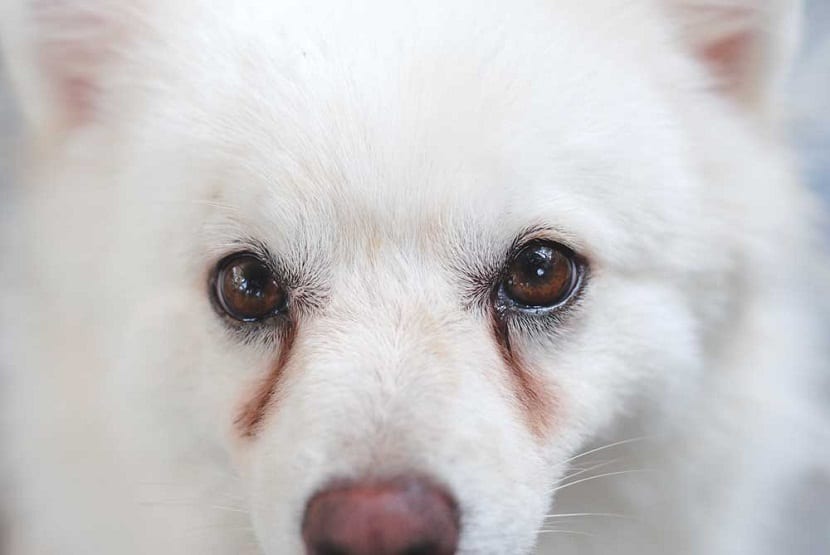
If you have a dog as a pet, you will know then that these are a great companyapart from that they are totally loyal with us and with the other members of the family, but it also represents a responsibility.
Like us, our dogs can also get sick, so it is important to realize different care throughout your life, as well as we do with ourselves, since there are many factors that can cause our dogs to suffer from some type of disease, especially in the eye diseases.
Visual problems in the Samoyeds breed

These problems can occur through different accidents, age or genetic factors.
Scientists have found that in samoyeds dogs congenital eye abnormalities are very likely to be passed from parent to child and this type of anomaly is very frequent in this breed and others, as is often the case with Pugs.
That is why if you have a Samoyed dog, it is of the utmost importance that you pay special attention to the health of your eyes and to prevent this type of disease, it is recommended that your Samoyed dog be evaluated annually by a pet ophthalmologist, which will perform tests such as those of the genetic screen, where diseases such as progressive retinal atrophy, retinal dysplasia and cataracts.
However, cataracts can vary greatly and Samoyeds can suffer from juvenile cataracts and punctate cataracts. As we mentioned earlier, the causes of eye diseases can be many more, however and in Samoyeds, feeding is a frequent cause cataracts. Old age is another common cause of cataracts in Samoyeds, as it is in humans.

Heredity is another cause of cataracts, since as we mentioned previously, many parents transmit it to their young. If you want to know if your dog is starting to suffer from cataracts, these are some symptoms that you should take into account:
- Cloudiness in the pupil of the eye
- Swelling around the eyes
- Squint
If your dog does not have symptoms, you should still make frequent visits to the vet, since many dogs have no symptoms, until the disease is very advanced. There are various treatments for cataracts in Samoyeds, depending on the severity and how advanced they are, but nevertheless, so-called punctate cataracts are treated only with surgery, since otherwise they can lead to the blindness of the dog.
These are other diseases that your Samoyed dog can suffer:
Glaucoma
This eye disease probably sounds familiar to you and as well as affects humans it also affects Samoyeds.
This condition consists of increased pressure inside the eyeball, which causes the optic nerve and the retina to be damaged and can be generated in one or both eyes of the dog. The factors that lead to this disease are several, but mainly it is the blockage of the drainage of the eye. Like the waterfalls glaucoma can cause blindness, but it can be avoided with treatment.
If you suspect that your dog has glaucoma, these are the symptoms to look out for:
- Excessive tearing
- Redness
- Squinting eyes
- Sensitivity to light
In general, in order for a veterinarian to determine whether or not your dog has glaucoma, he or she must measure the pressure of the eye. Treatments may vary depending on the dog and the severity of the disease, but surgery may be required if the damaged eyeball has to be removed.
Distichiasis
This is another disease that mainly affects Samoyeds. This ocular disorder consists of the eyelashes growing on the inner part of the eyelid, where hairs are not commonly produced.
If you suspect that your dog suffers from this disease, watch out for red eyes, if they squint, if they have excessive tearing or if your dog rubs his eye frequently. Although this does not have serious consequences for the animal, it can be an obstacle to your dog's vision.